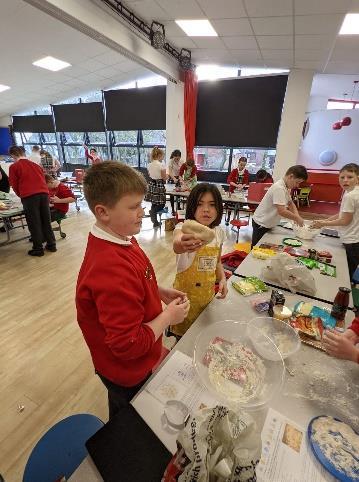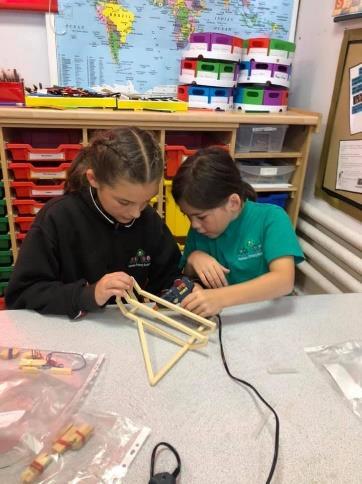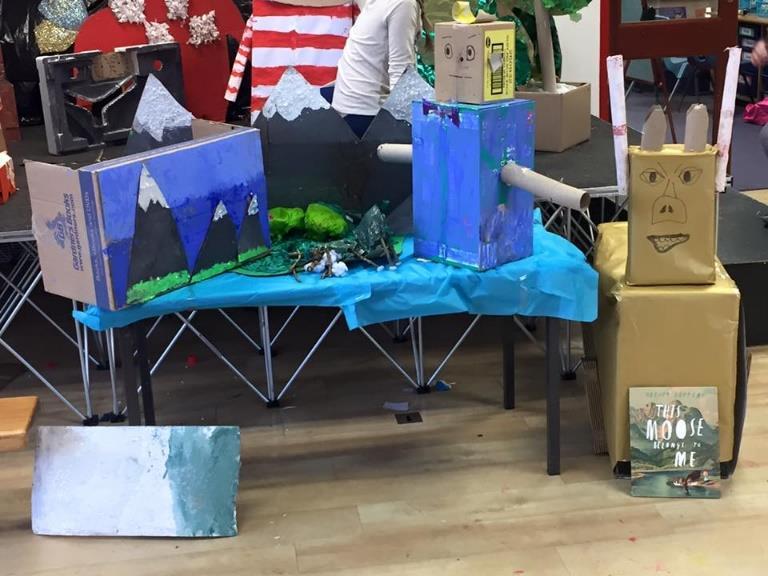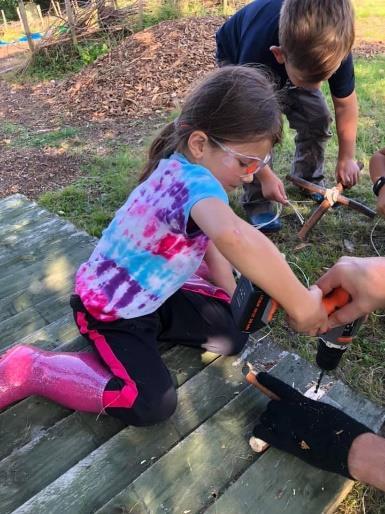 Progression of knowledge and skills
Progression of knowledge and skills
Subject Implementation
Hambleton Primary Academy seeks to provide an all-round education for children in a bright, stimulating and fun atmosphere. As part of Design and Technology teaching at Hambleton Primary Academy we provide children with the skills and knowledge which will develop an awareness of critical understanding of the impact of design and technology on daily life and the wider world. We also focus on possible activities which will relate to the interest and everyday experiences of our children. We aim to develop the creative, technical, and practical expertise needed to perform everyday tasks confidently and to participate successfully in an increasingly technological society. Through Design and Technology our children build and apply a repertoire of knowledge, understanding and skills in order to design and make quality products for a wide range of users. Children are exposed to a wealth of practical tools, testing, re-evaluating and amending a design until a desirable finished product is produced. They then go on to critique, evaluate and test their ideas and products along with the work of others. This process supports learning for life as it provides children with an opportunity to design and create products for a specific purpose; just as would be expected in design-based careers. Understanding and applying the principles of nutrition, food preparation and food sources is also part of this subject.
Fundamental Great British Values
At Hambleton Primary Academy, we are committed to ensuring that pupils have both respect for and an understanding of different faiths, cultures and lifestyles. We understand how this subject has underpinning links to British values. The spiritual, moral, social and cultural development of each child is central to everything that we do as a school. Our Design and Technology work reflects our children’s individual liberty – they have choices and identify the direction in which they want their work to develop. Children are given the opportunity to make links with other cultures and religions. For example; foods from around the world are explored, created and tasted. As a school, the spiritual, moral, social and cultural development of each child is at the core of what we do, it forms the foundation of our central vision, “Together we will make a difference”.
Planning
At Hambleton Primary Academy, Design and Technology is taught through a thematic approach. Our curriculum is thoughtfully planned to engage and inspire all our learners. Our long term and medium-term plans map out the themes covered each half term for each key stage. These plans define what we will teach to ensure an appropriate balance and distribution of work across each term. Design and Technology objectives have been carefully linked to these themes to make the learning relevant and interesting within a realistic context. We also provide a DT where children get to look at famous architects and their structures, giving context to the subject. Children will learn a plethora of practical skills during this week, where they are immersed in the design, make and evaluate planning used in DT and children are expected to use a wide-selection of real-life tools, including cordless drills, mitre blocks, junior hacksaws to name a few. Additionally, planning and teaching in Design and Technology is fully inclusive, ensuring that all children can access the curriculum at their level. Skills are progressively built upon as children journey through our school. Our planning ensures that children are taught to design, make, evaluate and develop their technical knowledge. Cross-curricular links are emphasised, enabling the children to apply their skills
and knowledge in other areas of the curriculum. When working with our children, we will always teach and model the safe use of tools and equipment and insist upon good practice, children will be taught to take steps to control risks.
Collecting Evidence
Evidence is collected in a variety of different ways. These include planning checks, pupil interviews, staff discussions and looking at children’s work. The school’s Facebook page is a valuable way of sharing children’s successes. Photographs are also taken of any work on display around the school and in classrooms.

Able, Gifted and Talented Pupils
End of year group expectations state key skills and knowledge needed for each year group which pupils are assessed against and tracked using data collections. Teachers can clearly see children working at greater depth for Design and Technology and can plan opportunities for these children. The
Design and Technology subject leader supports teachers in supporting GD pupils and ensuring breadth and balance. The subject lead will work with staff to ensure the development of techniques and opportunities which deliver appropriate stretch for AGT pupils into lessons.
SEND and PP Pupils
At our school we teach design and technology to all children, whatever their ability and individual needs. Design and technology implements the school curriculum policy of providing a broad and balanced education to all children. Through our design and technology teaching we provide learning opportunities that enable all pupils to make good progress. We strive hard to meet the needs of those pupils with special educational needs, those with disabilities, those with special gifts and talents, and those learning English as an additional language, and we take all reasonable steps to achieve this. For further details see separate policies: Special Educational Needs; Disability Non-Discrimination and Access; Gifted and Talented; English as an Additional Language (EAL).
When progress falls significantly outside the expected range, the child may have special educational needs. Our assessment process looks at a range of factors – classroom organisation, teaching materials, teaching style, differentiation – so that we can take some additional or different action to enable the child to learn more effectively. Assessment against the National Curriculum allows us to consider each child’s attainment and progress against expected levels. This helps ensure that our teaching is matched to the child’s needs.
Personal plans are also put in place for children with special educational needs. The plan may include, as appropriate, specific targets relating to design and technology.
Enrichment opportunities
Enrichment Activity
Examples
Further Information



 Cooking Club
Cooking Club



